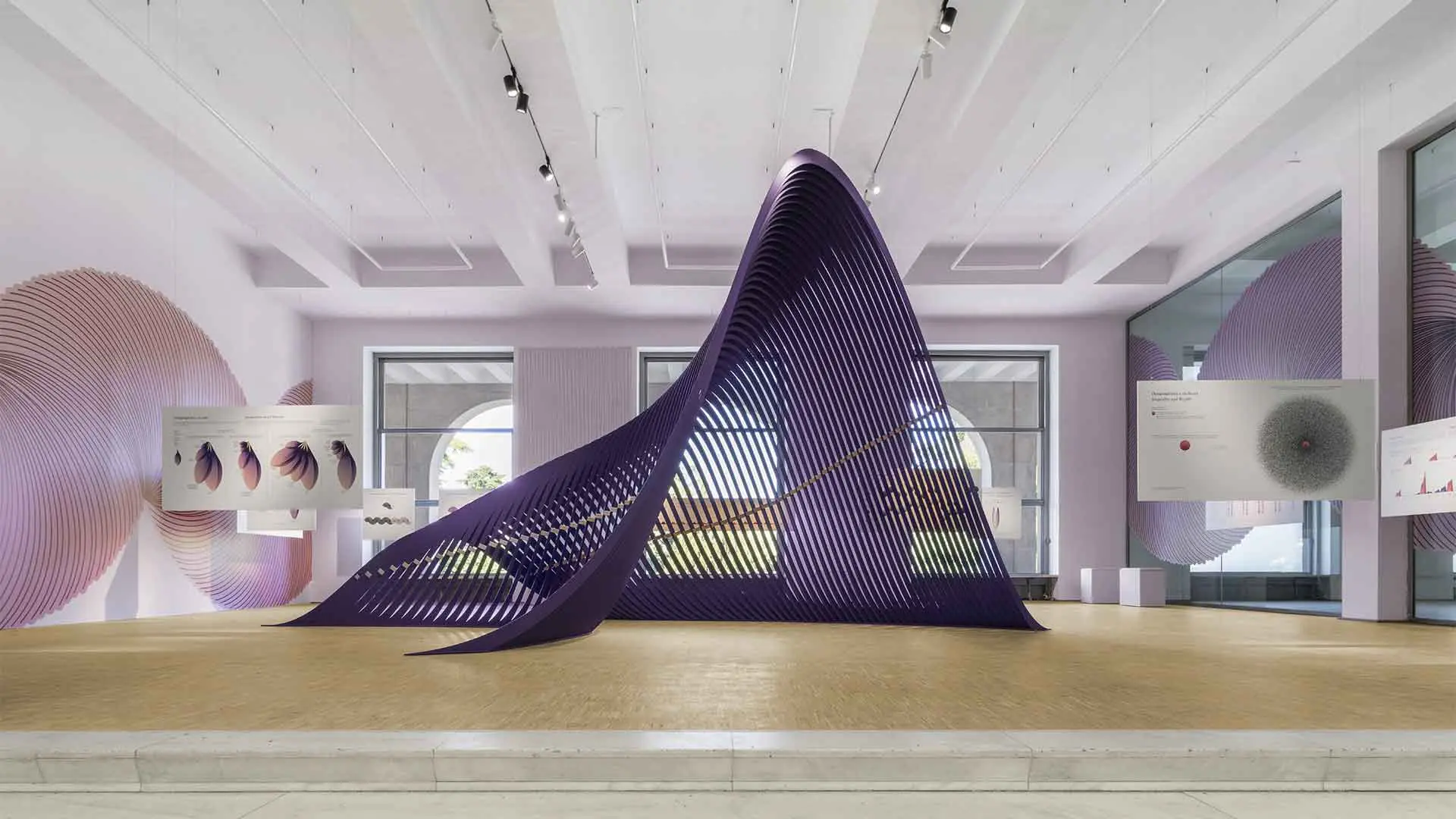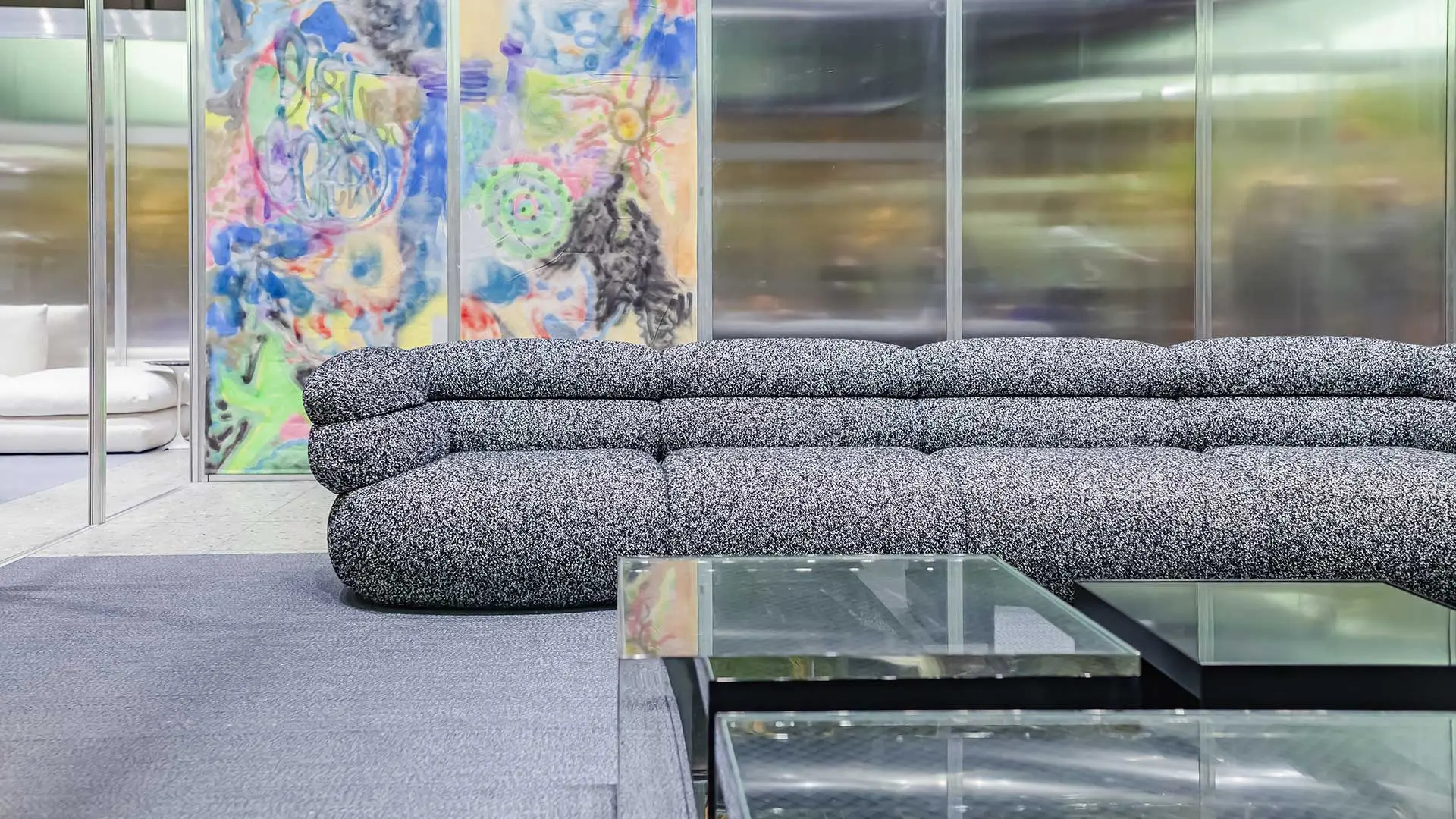From urban geopolitics to the biopolitics of bodies, the 24th Triennale - inaugurated by Nobel Laureate in Economics Michael Spence, amongst others, and open to the public until 9th November - denounces the structural inequalities that mark contemporary lives, offering insights and solutions through the contributions of internationally renowned artists, architects, designers and scholars
The future of the workplace lies in innovation: the brands tell all

After two uncertain years, Fantoni, Lago, Arper and Ritzwell talk about a sector in recovery, that has never stopped investing in solutions responding to the new work demands. In the office and at home.
On the subject of the future of the workplace, Alessandro Fantoni, Marketing Manager of the Fantoni brand, has four pictures in mind: the employee who, working from home, has had to earmark a comfortable yet quiet space in which to concentrate for a few hours. Second, at lunchtime, they leave their PC and, still standing, juggle PowerPoints and pots and pans. Third, working from home, the buzz has vanished. Lastly the coffee break, a fluid pause between one email and the next. “The first picture is linked to the tendency of companies to look for offices increasingly along the lines of small rooms and spaces in which to concentrate for a short time, the second responds to the growing demand for height-adjustable tables and the third to the need for areas with good soundproofing. The fourth reminds us of the collaborators’ need to inhabit the informally shared spaces.”
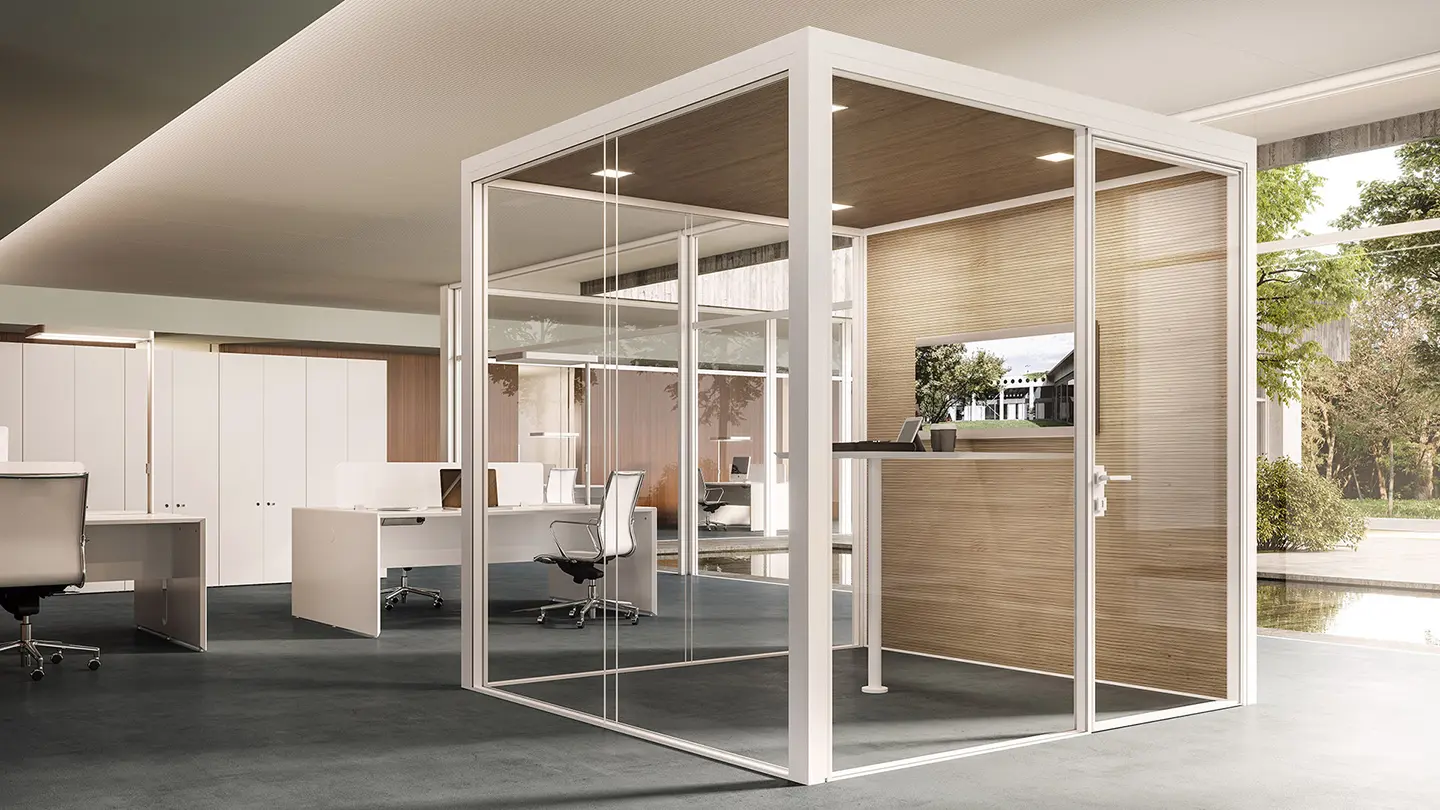
Fantoni, Acoustic Room, photo courtesy Fantoni
All this obviously impacts on Fantoni’s production - its office furniture department closed 2021 with turnover of 35 million euros: “It was an almost unthinkable result for us, given the times.” The above-target increase was seen especially in Acoustic Rooms (+55%), as well as in sound absorbing systems (+33%) and furnishing systems (+5%). On an industrial level, immediately prior to the pandemic, Fantoni had invested 8 million euros in a new sizing line, which has just gone into operation: “A major investment geared to automation, made with ongoing quality improvement in mind, as well as timesaving, cost-cutting and margin for error, and we expect this investment to have positive repercussions in 2022.” At this edition of the Salone, Fantoni says the brand will be presenting a desk made with 100% recycled and upcyclable material, as well as new cabling solutions: “Office dwellers will increasingly opt for desk sharing in the future and will need to be able to unplug their devices easily and quickly. Expect new things for the Acoustic Rooms, obviously, and we will again be showcasing the height-adjustable Meet Up collection, which scored such a hit at supersalone.”
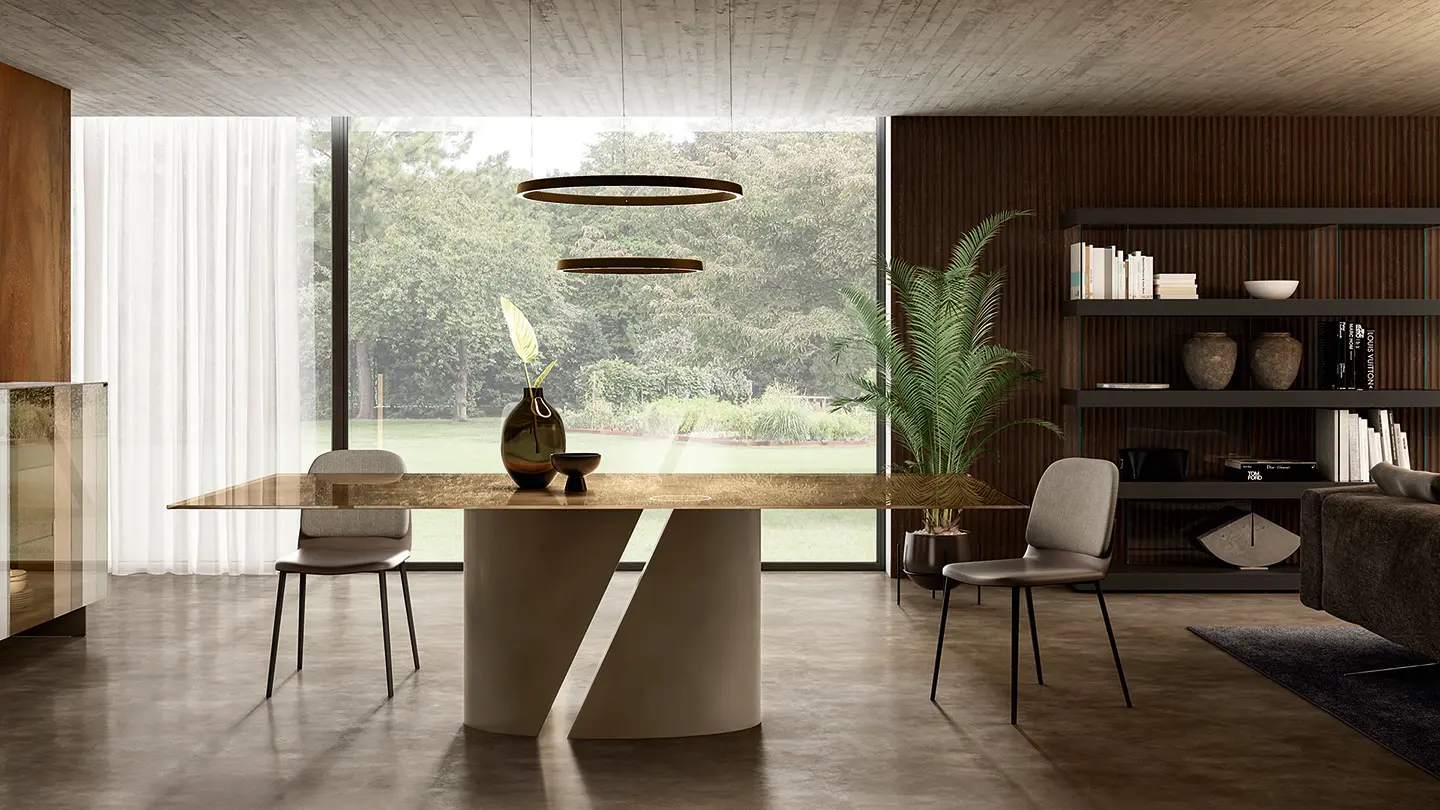
Lago, Tavolo Wadi, design Daniele Lago, photo courtesy Lago
“The future will be an increasingly hybrid mix of physical and digital experiences,” agreed Daniele Lago CEO and Head of Design of the brand Lago: “The last couple of years have taught us that we need to embrace flexibility and that smartworking and e-learning are an increasing part of our lives. Talking to our community has shown that these demands are central to homes of the future. We will therefore keep working and focusing on producing furnishings that can redesign the spaces, responding to the new needs for space and flexibility.”
Lago’s balance sheet also proved positive: sales were up almost 40% compared with the previous year, amounting to orders worth more than 56 million euros, achieved by overhauling the organisational models and new premises. The brand was also pleased with the escalating figures in the Asian and American markets, which saw strong growth in their respective turnovers, testament to the company’s drive towards internationalisation of the past few years. Digital figures were also on the up, with over 3.5 million recorded visits to the website, a rise of 40% in the number of sessions compared with the last two years: “We accelerated innovation at all levels in 2021, with initiatives geared to our relationship with our community, especially in the digital world, which has led to constant growth, 2022 got off to a very decisive start, and we’ll be bringing lots of new things to the June Salone, with an eye to investments geared to an increasingly sustainable future,” continued Daniele Lago.
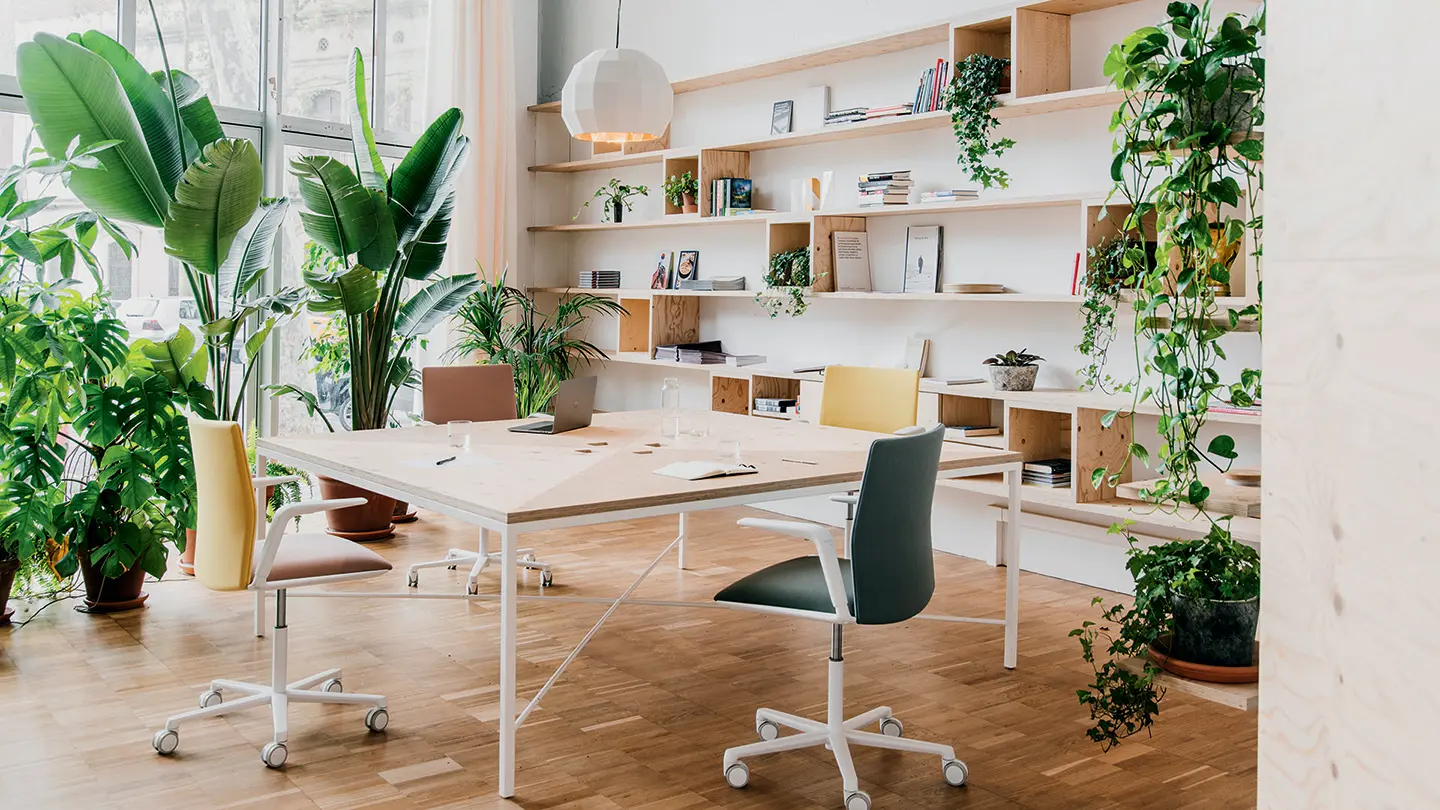
Arper, collezione Kinesit, design Lievore Altherr Molina, photo courtesy Arper
Innovation is thus the keyword for understanding how the sectoral companies are looking at the workplace, especially, after a challenging 2021 for the entire contract segment, which was badly affected by the problems caused by the pandemic, as well as rises in the costs of raw materials and difficulties in sourcing them, remembers Claudio Feltrin, President of Arper: “For us, it was really important not to halt our investments, despite the situation. We focused on improving our performance, ahead of the recovery. We set up Arper Lab in 2021, 1,400 m2 devoted to design, at our headquarters.” Feltrin also remarked that the last few years had also accelerated – and in some ways distorted – ongoing changes, leading on one hand to a sort of implosion between the domestic spaces and those of the home, and on the other triggering reflection on the meaning of the more institutional facets of workplaces, socialising and aggregation: “It is precisely this that has caused design to powerfully rethink the areas dedicated to work. Now, more than ever, spaces and furnishings need to be designed so as to encourage and foster opportunities for interface and exchange. Arper has always stood out for its crosscutting and modular approach to design,” he said, adding that for the brand, the lack of confines between the domestic spaces and those designated for work can be expressed through products that fit seamlessly into both contexts, and that this should also be the case with office seating, such as Kinesit, launched in 2014: “Last year we felt the need to produce a version with more of a domestic feel, precisely because we picked up on the trend for homeworking and thought about office seating with the home in mind.” The upshot was the Kinesit Met, created with warmer finishes and textures for the coverings and a particularly elegant treatment for the aluminium bases, in metallic finishes in copper, pale grey and anthracite.
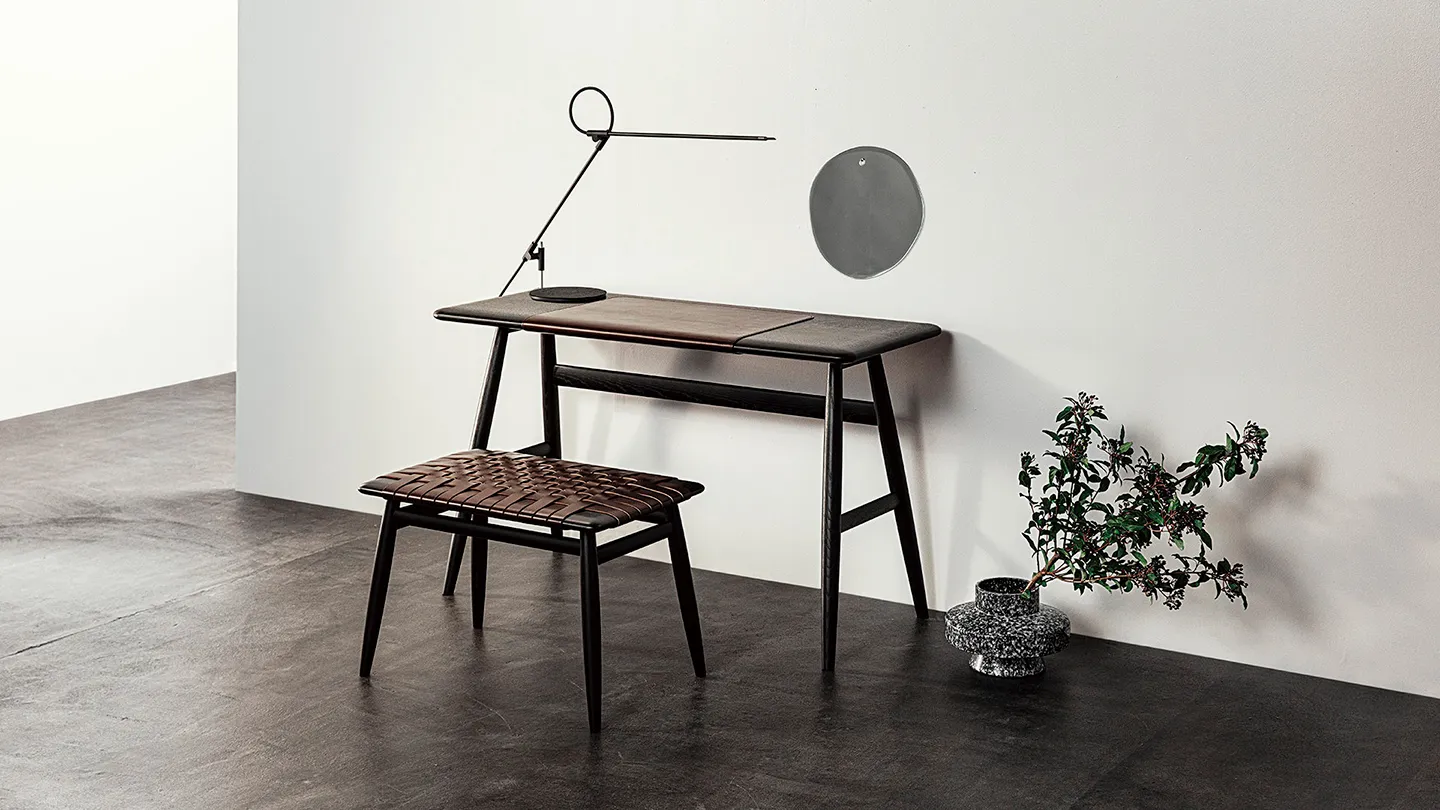
Ritzwell, MO Bridge Small Desk e MO Bridge Stool, design Shinsaku Miyamoto, photo courtesy Ritzwell
Ritzwell also notched up a positive year, registering a year-on-year sales increase of 110% in 2020 and 122% in 2021, again year-on-year: “In 2021 the European market share was over 60% of the global market share: Europe is now Ritzwell’s prime market,” said the company. “In terms of workplaces, the MO Bridge Small Desk has proved to lend itself extremely well to being a home workstation both because of the demands imposed by the pandemic but also because of the increase in flexible working which often calls for alternating office-based and home-based work.” Designed by Shinsaku Miyamoto, is a desk that combines pure volumes in walnut or solid oak with a decorative leather surface. Thanks to its sleek design, Ritzwell says, it fits perfectly into any sort of environment. “It is often paired with the MO Bridge Stool, also designed by Shinsaku Miyamoto, which boasts a seat crafted from fine woven leather married with a wooden frame.” According to Ritzwell, another trend in the more prestigious workspaces is the increasing importance of elegant, image spaces, used as relaxation areas as well as for informal and convivial get-togethers: “Calm and peaceful places, suggestive of contact with nature – and Ritzwell furniture, which is always made from wood and natural materials such as leather and skin, makes a fundamental contribution to this.”






